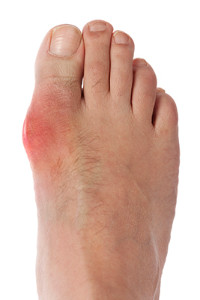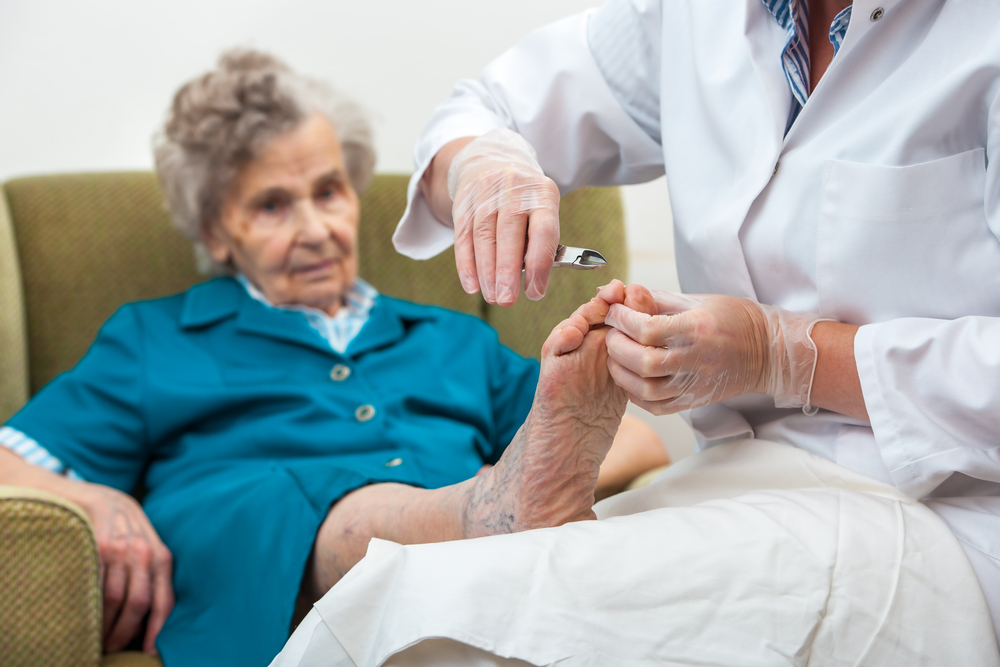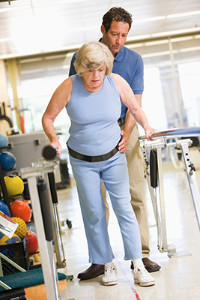
 Many women choose to wear high heels to accent the shape of the foot, despite the pain that may be endured. Additionally, other foot conditions may develop as a result of wearing this type of shoe, including blisters, deformities involving the toes, bunions, and strained calf muscles. Research has shown that when they are worn occasionally, it may give the feet the needed time to rest and heal. It may be beneficial to wear flat shoes or a more comfortable style that may include shoes that are wider, which may give the toes adequate room to move about in. Moderate relief may be found when gentle stretching exercises are performed. This may be accomplished by rolling your foot over a tennis ball, which will stretch the bottom of the foot, in addition to having your heel drop as you stand on a step, which will aid in stretching the heel. If you would like additional information about how high heels affect the feet, please consult with a podiatrist.
Many women choose to wear high heels to accent the shape of the foot, despite the pain that may be endured. Additionally, other foot conditions may develop as a result of wearing this type of shoe, including blisters, deformities involving the toes, bunions, and strained calf muscles. Research has shown that when they are worn occasionally, it may give the feet the needed time to rest and heal. It may be beneficial to wear flat shoes or a more comfortable style that may include shoes that are wider, which may give the toes adequate room to move about in. Moderate relief may be found when gentle stretching exercises are performed. This may be accomplished by rolling your foot over a tennis ball, which will stretch the bottom of the foot, in addition to having your heel drop as you stand on a step, which will aid in stretching the heel. If you would like additional information about how high heels affect the feet, please consult with a podiatrist.
High heels have a history of causing foot problems. If you have any concerns about your feet or s, contact Dr. Robert Hope from Riverside Podiatry. Our doctor can provide the care you need to keep you pain-free and on your feet.
Effects of High Heels on the Feet
High heels are popular shoes among women because of their many styles and societal appeal. Despite this, high heels can still cause many health problems if worn too frequently.
Which Parts of My Body Will Be Affected by High Heels?
What Kinds of Foot Problems Can Develop from Wearing High Heels?
How Can I Still Wear High Heels and Maintain Foot Health?
If you want to wear high heeled shoes, make sure that you are not wearing them every day, as this will help prevent long term physical problems. Try wearing thicker heels as opposed to stilettos to distribute weight more evenly across the feet. Always make sure you are wearing the proper shoes for the right occasion, such as sneakers for exercising. If you walk to work, try carrying your heels with you and changing into them once you arrive at work. Adding inserts to your heels can help cushion your feet and absorb shock. Full foot inserts or metatarsal pads are available.
If you have any questions please feel free to contact our office located in Tuscaloosa, and Fayette, AL . We offer the newest diagnostic and treatment technologies for all your foot needs.
Read more about Effect of High Heels on the Feet The foot condition that is referred to as gout often develops as a result of increased uric acid levels that are found in the blood. Crystals will form in the joints in the bottom of the big toe, often producing severe pain and discomfort. Foods that contain high amounts of purine are typically responsible for the onset of gout. These group of foods may include certain types of seafood, liver, bacon, or alcoholic beverages. There are several ways to prevent gout from forming, including losing weight slowly if needed, drinking plenty of fresh water daily, and increasing your consumption of fruits and vegetables. The treatment of gout typically involves taking anti-inflammatory medications, in addition to incorporating positive lifestyle changes into your daily routine. Please consult with a podiatrist for additional information about gout.
The foot condition that is referred to as gout often develops as a result of increased uric acid levels that are found in the blood. Crystals will form in the joints in the bottom of the big toe, often producing severe pain and discomfort. Foods that contain high amounts of purine are typically responsible for the onset of gout. These group of foods may include certain types of seafood, liver, bacon, or alcoholic beverages. There are several ways to prevent gout from forming, including losing weight slowly if needed, drinking plenty of fresh water daily, and increasing your consumption of fruits and vegetables. The treatment of gout typically involves taking anti-inflammatory medications, in addition to incorporating positive lifestyle changes into your daily routine. Please consult with a podiatrist for additional information about gout.
Gout is a painful condition that can be treated. If you are seeking treatment, contact Dr. Robert Hope from Riverside Podiatry. Our doctor will treat your foot needs.
What Is Gout?
Gout is a form of arthritis that is characterized by sudden, severe attacks of pain, redness, and tenderness in the joints. The condition usually affects the joint at the base of the big toe. A gout attack can occur at any random time, such as the middle of the night while you are asleep.
Symptoms
Risk Factors
Prior to visiting your podiatrist to receive treatment for gout, there are a few things you should do beforehand. If you have gout you should write down your symptoms--including when they started and how often you experience them, important medical information you may have, and any questions you may have. Writing down these three things will help your podiatrist in assessing your specific situation so that he or she may provide the best route of treatment for you.
If you have any questions, please feel free to contact our office located in Tuscaloosa, and Fayette, AL . We offer the newest diagnostic and treatment technologies for all your foot care needs.
Read more about Everything You Need to Know About Gout It’s important to properly care for the feet, especially for diabetic patients. Minor cuts and scrapes may be slow to heal, which is often due to the elevated insulin levels. These high levels may cause the nerves to become damaged, which may in turn cause a lack of feeling in the feet. Research has shown there are ways to possibly prevent specific foot conditions from occurring. This may be accomplished by having regular foot exams, wearing shoes that are designed for various foot ailments that may be present, or by performing low-impact exercise. The nerve damage that may occur is referred to as neuropathy, and can be very painful. If you are diabetic, it is strongly suggested that you visit a podiatrist frequently while also being sure to do daily foot inspections at home.
It’s important to properly care for the feet, especially for diabetic patients. Minor cuts and scrapes may be slow to heal, which is often due to the elevated insulin levels. These high levels may cause the nerves to become damaged, which may in turn cause a lack of feeling in the feet. Research has shown there are ways to possibly prevent specific foot conditions from occurring. This may be accomplished by having regular foot exams, wearing shoes that are designed for various foot ailments that may be present, or by performing low-impact exercise. The nerve damage that may occur is referred to as neuropathy, and can be very painful. If you are diabetic, it is strongly suggested that you visit a podiatrist frequently while also being sure to do daily foot inspections at home.
Diabetic foot care is important in preventing foot ailments such as ulcers. If you are suffering from diabetes or have any other concerns about your feet, contact Dr. Robert Hope from Riverside Podiatry. Our doctor can provide the care you need to keep you pain-free and on your feet.
Diabetic Foot Care
Diabetes affects millions of people every year. The condition can damage blood vessels in many parts of the body, especially the feet. Because of this, taking care of your feet is essential if you have diabetes, and having a podiatrist help monitor your foot health is highly recommended.
The Importance of Caring for Your Feet
Patients with diabetes should have their doctor monitor their blood levels, as blood sugar levels play such a huge role in diabetic care. Monitoring these levels on a regular basis is highly advised.
It is always best to inform your healthcare professional of any concerns you may have regarding your feet, especially for diabetic patients. Early treatment and routine foot examinations are keys to maintaining proper health, especially because severe complications can arise if proper treatment is not applied.
If you have any questions please feel free to contact our office located in Tuscaloosa, and Fayette, AL . We offer the newest diagnostic and treatment technologies for all your foot needs.
Read more about How to Care for Diabetic Foot Recent research has shown that when the body becomes stronger through stretching and exercise, the risk of falling may decrease. Performing proper stretching techniques may improve balance and this may greatly diminish the fear of falling. Walking has been known to be beneficial in maintaining proper balance in addition to practicing the Chinese martial arts that is known as tai chi. It’s important to properly take care of your feet by trimming the toenails correctly, and regularly visiting a podiatrist who can properly assess the general health of the feet. Conditions in the home may be improved by using non-slip rugs, installing brighter bulbs, and using a bar in the tub or shower area for increased stability. Medications may need to be reviewed on a routine basis in addition to having a vision test performed that will ensure you are seeing correctly. When these simple strategies are implemented, the fear of falling may disappear.
Recent research has shown that when the body becomes stronger through stretching and exercise, the risk of falling may decrease. Performing proper stretching techniques may improve balance and this may greatly diminish the fear of falling. Walking has been known to be beneficial in maintaining proper balance in addition to practicing the Chinese martial arts that is known as tai chi. It’s important to properly take care of your feet by trimming the toenails correctly, and regularly visiting a podiatrist who can properly assess the general health of the feet. Conditions in the home may be improved by using non-slip rugs, installing brighter bulbs, and using a bar in the tub or shower area for increased stability. Medications may need to be reviewed on a routine basis in addition to having a vision test performed that will ensure you are seeing correctly. When these simple strategies are implemented, the fear of falling may disappear.
Preventing falls among the elderly is very important. If you are older and have fallen or fear that you are prone to falling, consult with Dr. Robert Hope from Riverside Podiatry. Our doctor will assess your condition and provide you with quality advice and care.
Every 11 seconds, an elderly American is being treated in an emergency room for a fall related injury. Falls are the leading cause of head and hip injuries for those 65 and older. Due to decreases in strength, balance, senses, and lack of awareness, elderly persons are very susceptible to falling. Thankfully, there are a number of things older persons can do to prevent falls.
How to Prevent Falls
Some effective methods that older persons can do to prevent falls include:
Falling can be a traumatic and embarrassing experience for elderly persons; this can make them less willing to leave the house, and less willing to talk to someone about their fears of falling. Doing such things, however, will increase the likelihood of tripping or losing one’s balance. Knowing the causes of falling and how to prevent them is the best way to mitigate the risk of serious injury.
If you have any questions, please feel free to contact our office located in Tuscaloosa, and Fayette, AL . We offer the newest diagnostic and treatment technologies for all your foot care needs.
Read more about Falls Prevention